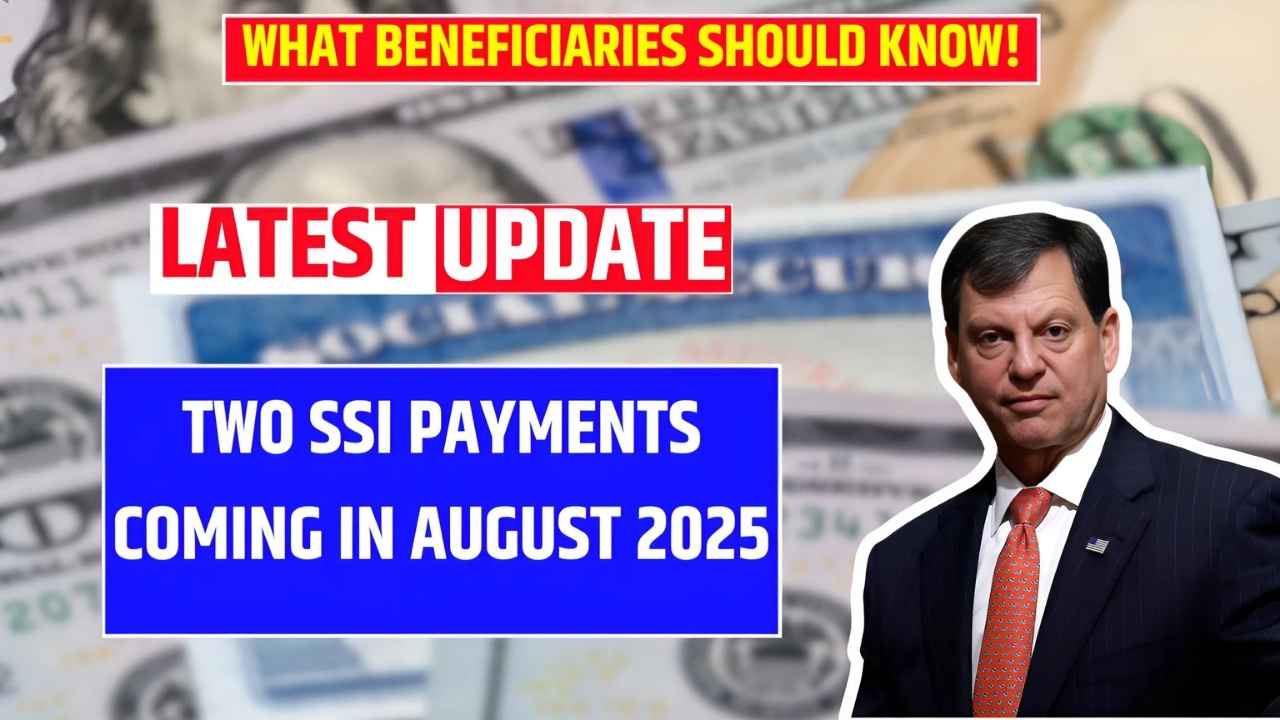Two SSI Payments Coming in August 2025: Supplemental Security Income (SSI) recipients often rely on a predictable payment schedule to manage their monthly expenses. However, due to quirks in the calendar, some months include two SSI payments instead of one. August 2025 is one such month when beneficiaries will receive two SSI payments, creating both opportunity and confusion for millions.
Understanding why this happens and how to plan for it is crucial to avoid financial mishaps later. In this article, we explain the reason behind the double SSI payments in August 2025, the exact payment dates, who will receive them, and how it affects the September disbursement.
Why Are There Two SSI Payments in August 2025?
SSI benefits are typically issued on the 1st of each month. However, when the 1st falls on a weekend or federal holiday, the payment is made on the preceding business day. This ensures beneficiaries receive their payments without delay due to bank closures.
In August 2025, the SSI payment schedule shifts due to the Labor Day holiday. Since September 1, 2025 (Monday) is a federal holiday, the payment for that month is moved up to August 29, 2025 (Friday).
Dates of the Two Payments
Here’s how the SSI payments are scheduled for August 2025:
- Friday, August 1, 2025 – Regular SSI payment for the month of August.
- Friday, August 29, 2025 – Early SSI payment for the month of September (due to Labor Day on September 1).
Though it may seem like a bonus, the second payment on August 29 is technically the September payment sent early, not an extra benefit.
Who Will Receive Two Payments?
People who receive only SSI (and not Social Security retirement or disability benefits) are typically paid on the 1st of each month. These individuals will receive their August and early September payments both within the same month—August 1 and August 29, respectively.
If you receive both SSI and Social Security benefits, your payment dates may vary. Social Security payments are usually made based on your birthdate and may not fall on the 1st of the month. However, your SSI portion will still follow the same adjusted schedule, meaning you may also receive two SSI-related deposits in August.
How Much Will the Payments Be?
The maximum monthly SSI benefit in 2025 is expected to be:
- $967 for individuals
- $1,450 for eligible couples
These are the federal base rates, and some states may provide an additional state supplement, which can increase the total monthly amount.
No, each payment in August 2025 will reflect the regular monthly SSI amount. You’re not receiving extra money—you’re just receiving the September benefit early. This means there will be no SSI deposit in September, so budgeting is important.
Budgeting Tips for SSI Recipients
Since the second payment in August is actually for September, recipients should plan to set aside that money for the next month’s expenses. Treating the August 29 deposit as September’s income can help avoid financial shortfalls.
People who forget that no SSI deposit will arrive in September may accidentally overdraw accounts or miss bill payments. Make sure you mark your calendar and update any automatic withdrawals accordingly.
Payment Method and Timing
SSI benefits are typically delivered via:
- Direct deposit to a bank account
- Direct Express® debit card
- Electronic Payment Account (EPA)
Regardless of the method, the deposit should appear by the morning of the scheduled date, though some banks may process the funds earlier or later in the day.
If you don’t receive your SSI payment by the expected date:
- Wait until the next business day. Sometimes, delays happen due to banking systems.
- Check with your bank or Direct Express.
- Contact the Social Security Administration at 1-800-772-1213 (TTY: 1-800-325-0778).
Will This Happen Again?
Yes, double payments occasionally occur when holidays or weekends push the regular payment dates earlier. Similar situations may arise in:
- May 2025 (due to June 1 falling on a Sunday)
- January 2026 (if January 1 is a holiday and Sunday)
These are routine scheduling adjustments and should not be considered as bonus or increased benefits.




